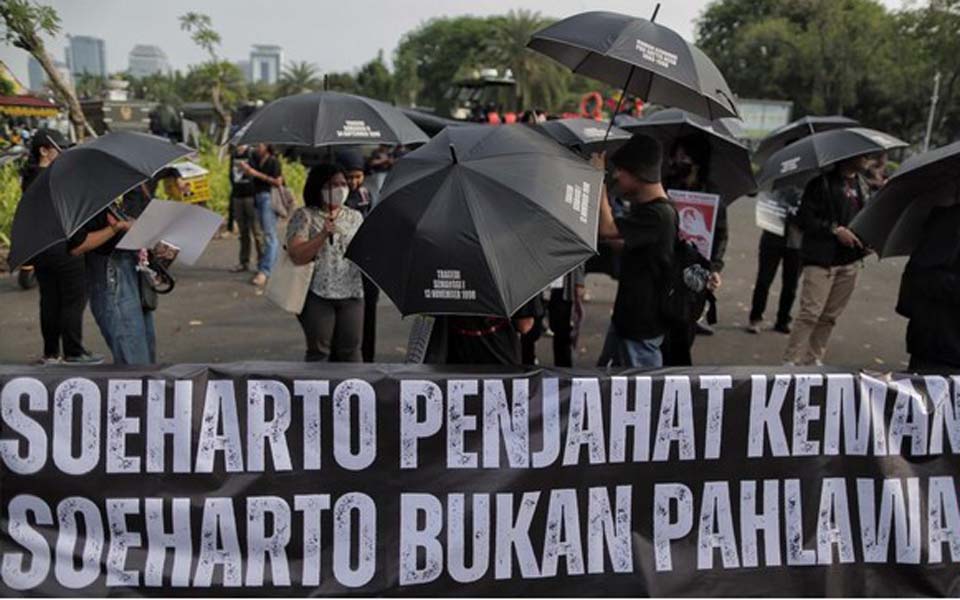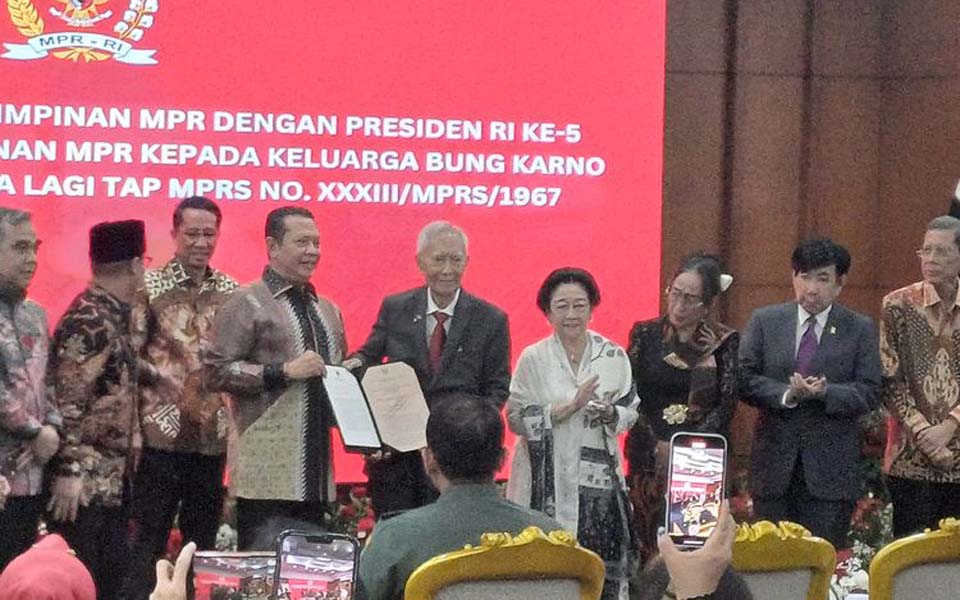Surabaya – During the colonial era communism flourished in Indonesia. One of the reasons was the behaviour of the native elite (elite bumiputra) who failed to defend the ordinary people. This however is unlikely to be repeated now.
This was the common thread coming out of the dissertation of a book titled The Rise of Indonesian Communism by Ruth T McVey in the East Java provincial capital of Surabaya on Thursday February 25. Attending as resource people were Cornell University emeritus Professor Benedict Anderson and the head of the Progressive Lecturers Union (SDP) Airlangga Pribadi.
The book was first published by Cornell University Press in 1965 under the same title and in Indonesian by the Bamboo Community in January 2010. The book was banned under the New Order regime of former President Suharto.
Airlangga said that Marxist ideology grew quickly in Indonesia during the Dutch colonial period. The fertile ground for these ideas was a society oppressed by a colonial government. Conversely the elite native class failed to defend the ordinary people and instead tended to collaborate with the colonial government.
“Communism also presented itself as a concept of a just king (ratu adil) but not in the personification of an individual, but as a system to be jointly struggled for,” said Airlangga, who also teaches politics at the Airlangga University Faculty of Social and Political Science in Surabaya.
According to Benedict Anderson, it will be difficult for communism to experience this kind of growth now. On the one hand, the middle-class in Indonesia is weak and inactive as a consequence of the education system during the New Order era. The majority of the Indonesian middle-class tends to be exclusive and pragmatic. On the other hand, with China’s transformation to capitalism and the collapse of the Soviet Union, there is no basis for communism anymore.
Nevertheless, a progressive movement is need if the Indonesian middle-class wishes there to be support for marginal sectors of society. (INA)
[Translated by James Balowski.]















